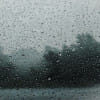Strong sunscreen in monsoon? Dermatologist says yes

Once monsoon begins, no one escapes the almost every day struggles while navigating Dhaka. It's not just the roads and shoes that suffer; your skin and feet do too — and perhaps the most. The constant dampness, dirty water, humid air, and wet clothes create the perfect environment for infections, rashes, breakouts, and even hair fall. These seasonal troubles often go unnoticed until they become serious enough to require medical attention.
To understand how to manage them, we spoke to Dr Sifat Saba — aesthetic dermatologist and laser expert, at 'Digilab Aesthetic and Laser Center' and at 'PHC Aesthetic & Derma Care' — who has observed a sudden rise in weather-related cases this season.
"When the streets are flooded and people have to walk through them," says Dr Saba, "this prolonged exposure to dirty water causes fungal infections like athlete's foot. When your skin remains damp and soft for too long, its natural barrier weakens. This makes it easier for fungi and bacteria to enter and grow."

She also explains that peeling skin between the toes, itching, cracks, and even a foul smell are signs that something is wrong. In some cases, especially among diabetics or people with small cuts, bacterial infections such as cellulitis can also develop. "I often see a lot of cases like this," she adds.
To avoid these issues, Dr Saba recommends wearing open or quick-drying footwear when you expect to walk through water. She also advises washing your feet with gentle soap and water and drying them thoroughly, especially between the toes.
People who are prone to fungal infections can use an antifungal powder or cream for added protection. It is also important, she stresses, not to reuse wet shoes the next day.
Dr Saba discussed the importance of sunscreen when we asked about another common skincare concern. One of the most frequent monsoon skincare mistakes, she says, is skipping sunscreen.
"People think clouds protect them from sun damage, but that's not true," she explains. "Around 80 per cent of UV rays still reach your skin despite the clouds. UVA rays are especially harmful as they contribute to pigmentation, ageing and, in the long run, skin cancer."
She recommends using a broad-spectrum sunscreen with SPF 30 or higher and PA+++ protection. Even if you are mostly indoors, she notes, you still need protection near windows or screens.
The monsoon season also tends to cause oilier skin and more breakouts, particularly in those who are already acne-prone. On this matter, Dr Saba says, "The humidity stimulates oil glands. The combination of sweat and dirt clogs your pores."
To manage this, she suggests sticking to a simple skincare routine. Use a face wash with salicylic acid, apply a non-comedogenic moisturiser, and finish with a lightweight sunscreen.
However, not all acne during the monsoon is actually acne, she cautions. "Many people come in with small, itchy bumps on their forehead, chest or back. These do not respond to regular acne treatments. That is fungal acne, or Malassezia folliculitis," she says.
"The cause is yeast, not bacteria, so the treatment is different. Topical antifungal creams such as ketoconazole work well. In stubborn cases, we prescribe oral antifungals. It is important to get the diagnosis right early on before trying random products."
Hair fall is another common complaint dermatologists face during this season. "It is real and it is seasonal," says Dr Saba. "Humidity leads to scalp inflammation and triggers temporary shedding known as telogen effluvium. This becomes worse if you shampoo too often, tie wet hair, or use harsh styling tools."

To control it, she recommends using a mild anti-dandruff shampoo twice a week and maintaining a balanced diet rich in protein. Supplements such as biotin or zinc may also help. However, if the shedding continues for more than six weeks, she advises a scalp evaluation.
Fabric choices also make a difference. "Tight synthetic clothes trap sweat and heat, which causes skin rashes or fungal infections. Choose breathable fabrics such as cotton or linen and change out of wet clothes as soon as possible."
She adds that many people unknowingly worsen their skin condition during the monsoon. "Over-washing oily skin, skipping sunscreen, using heavy creams or makeup, not drying off properly, or staying in wet shoes for hours are all common mistakes. These can easily be avoided."
And what about home remedies? "Some can help mildly," Dr Saba says. "Boiled neem water, a bit of coconut oil for dry areas, or diluted apple cider vinegar for itchy skin may work. But I always caution against raw garlic or lemon as they can cause burns. Just because something is natural does not mean it is always safe."
Her final advice is simple. "Dhaka's monsoon can be tough on your skin and your patience. But a few small daily habits can save you from weeks of discomfort. Listen to your skin. It usually tells you when something is wrong," Dr Saba ends with a smile.

 For all latest news, follow The Daily Star's Google News channel.
For all latest news, follow The Daily Star's Google News channel. 








Comments